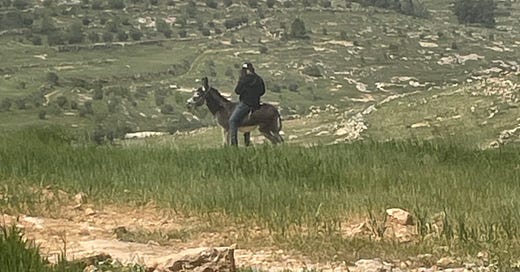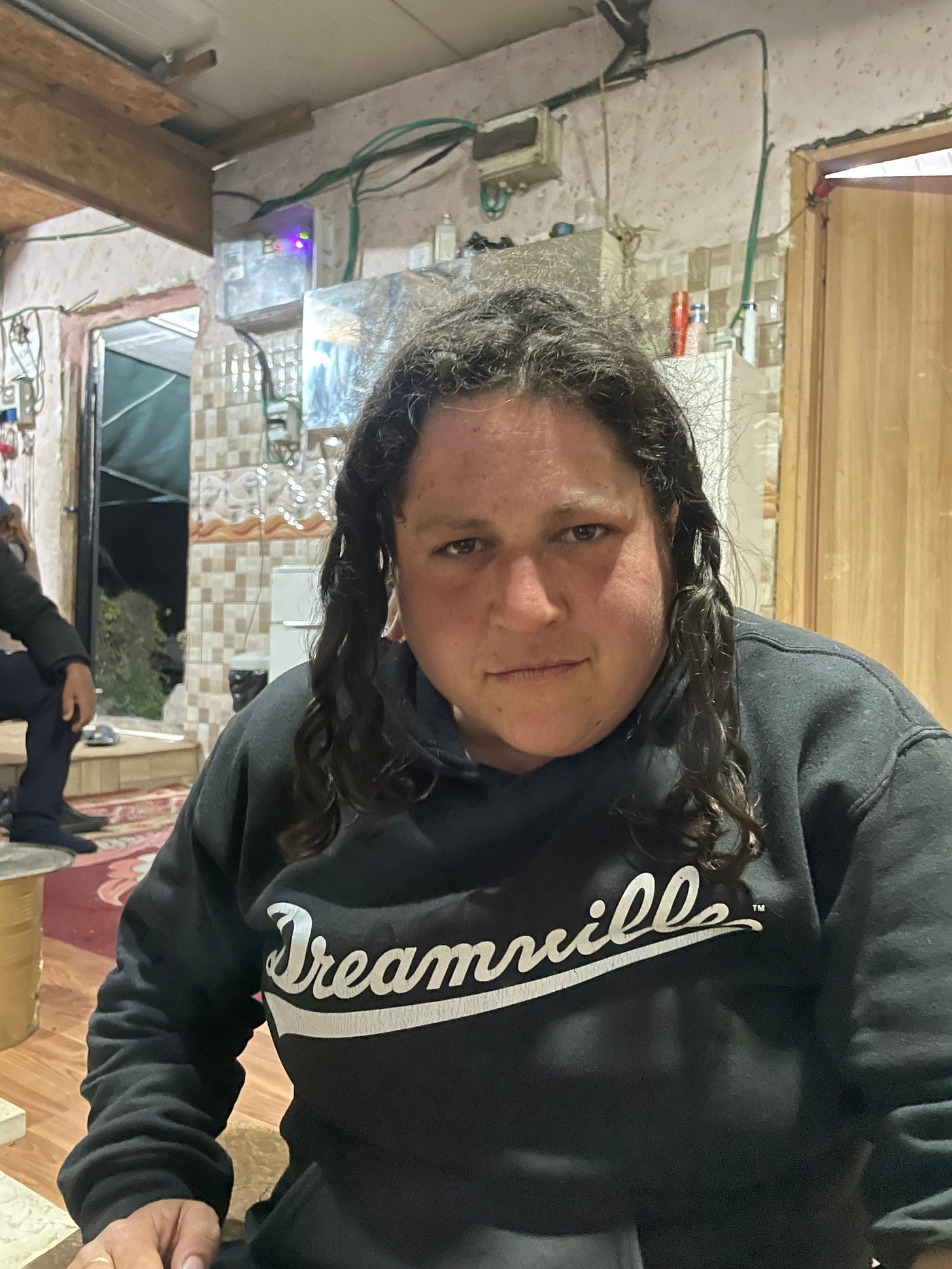I am a child with something to say, please listen to me
On the parentification of Palestinian children
Some of the children here have started playing a new game with me when we shepherd. They take my phone, and with it, assume the role of activist. They say that the army is coming and take pictures of the landscape around us. In this game, I am supposed to play the settler. They shout that I am coming and take videos of me as they run back and forth. I play along and shout things I’ve heard the settlers say. “I am a direct descendant of Abraham!” “This is my land!” “You can stay if you are good guests”.
(me pretending to be a settler and making peyas with my hair)
This game certainly feels like a trauma response by the children of being constantly harassed and scared by Israel. Yet, I play along. I find it somewhat cathartic to play the settler and say the things I cannot say directly to the settlers. When the actual army or actual settlers really do appear, the game ends and the children start screaming and running towards their home.
At another family home in the village, the children cope with music. Unlike the music I listened to as a child, there are no pop beats or lighthearted lyrics. The songs they play are always about Palestine. About the land and the people and their struggle. A young girl here plays a song on repeat. I watch the music video as she acts it out.
In the video, a group of children begins to sing in front of a menacing gate. As they begin, a soldier dressed in green points his machine gun at the children. I wonder out loud what they are singing, but then the words turn to English. The children sing about how they are just children. How they want to play and learn and be loved in safety. How they are innocent and just want to play outside like the birds. As the song continues, the soldier continues to point his gun at the children.
As I look at this little girl copying the lyrics and dance of the little girl in the video, I feel sad. Despite not talking about the occupation much, this little girl has a clear handle on exactly what it means for her to grow up Palestinian in occupied Palestine. In the evenings, we kick around a soccer ball I gifted the village. She is very good at soccer. I wonder to myself if she will ever have an opportunity to pursue this love outside of her home. I try not to ruminate on this too long, lest I get too depressed to kick the ball back to her.
In another village, there is a young boy about ten years old. Whenever I arrive at this village, he insists on getting in the car and directing me where to park. When I succeed without incident, he tells me I did a good job. Whenever I leave, the toddlers and babies surround the car and stand in the middle of the road. Not wanting to hit any of them, I call this ten year old over to round up the babies. He does this with an ease borne of the repetition of this task. He is in charge of the younger children.
I see this same ten year old following around the young men with a look of tenacity and bravery in his eyes. The adults quickly shoo him away. I see hurt behind his facade of aloofness. He goes to find the other boys his age to play with. Every time I see this boy, I am filled with a deep desire to buy him a present. I want to make him smile and remind him that he is a child who deserves a childhood.
But what does one buy for the child who is no longer a child? And if I bought something for him, surely I would have to buy something for the other 80 children in the village. Would these present assuage my white guilt? Would they end the occupation? Solve decades of inter generational trauma? Alas, I doubt it.
ReplyForward
Add reaction






Anna. Thank you so much for sharing these stories.